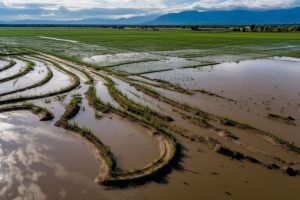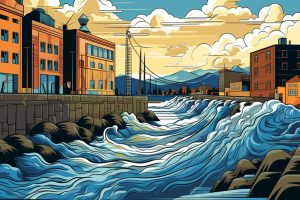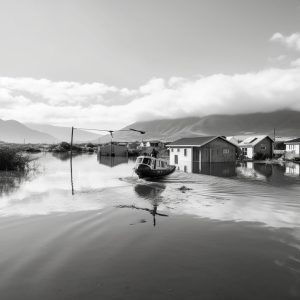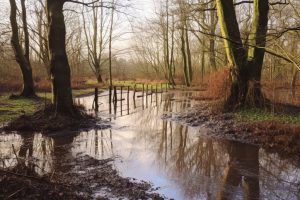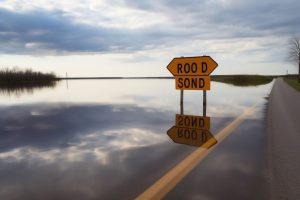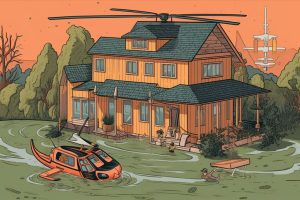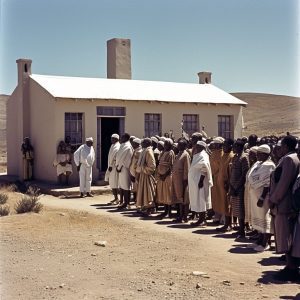The Western Cape region of South Africa is facing a potential disaster due to its heavy reliance on diesel. The region depends on Eskom’s dieselpowered station at Ankerlig and diesel generators at hospitals, schools, and businesses, which raises concerns about the consequences of an unforeseen crisis. This issue was highlighted during a recent Cape Town Press Club gathering where Premier Alan Winde acknowledged the possibility of a diesel crisis.
The ongoing taxi strike in the Western Cape has resulted in severe consequences on the education sector. In a recent statement, David Maynier, the Western Cape Provincial Minister of Education, highlighted the challenges faced by learners, educators, and schools due to the strike.
The South African National Taxi Council (Santaco) Western Cape branch has issued a plea to its members. In light of recent violence and property damage that have affected the city, the organization urges its members to adopt a peaceful stayaway approach. Santaco Western Cape expresses deep regret for the loss of life and destruction, while emphasizing its commitment to resolving disputes through lawful means. The organization strongly condemns violence and disruption.
The Western Cape region of South Africa is facing a growing issue of illegal snaring. This practice involves using traps to catch wild animals, which poses a significant threat to the area’s wildlife, including top predators like leopards and caracals. Despite being illegal under the province’s Nature Conservation Ordinance since 1974, conservationists have observed increased usage of these traps, particularly in the Boland region.
The Western Cape Government is requesting a provincial disaster declaration from the National Disaster Management Centre (NDMC) following severe weather from June 1419 that caused significant damage. Western Cape Minister of Local Government, Environmental Affairs, and Development Planning Anton Bredell presented a consolidated damage report to the cabinet, which estimated unfunded damages at R703.3 million.
The Koeberg Nuclear Power Plant, located in Cape Town, is facing refurbishment delays, which is causing concern among residents and the Western Cape Government (WCG). The plant’s lifespan was extended to mitigate the effects of load shedding, but this decision has led to unforeseen consequences.
The National Department of Water and Sanitation (DWS) is closely monitoring the water situation in the Western Cape following heavy rainfall, which has boosted dam levels in the province. The Western Cape Water Supply System (WCWSS), which consists of the six largest dams in the area, has reached an impressive 90% capacity, the highest level since June 2014. The Theewaterskloof dam, for example, currently has a water level of 96%, a significant increase from last year’s 76.67%.
A brief pause in the succession of cold fronts that have hit the Western Cape provided an opportunity for humanitarian assistance to reach those affected by widespread flooding. Over the weekend, the provincial government, communitybased organizations, and NGOs united to help those most in need.
The Western Cape region has recently experienced a significant amount of rainfall, leading to the temporary closure of several Cape Nature reserves. Jonkershoek, Hottentots Holland, Gamkaberg, Limietberg, and the Cederberg are among the affected reserves. The wind and rain have caused damage to certain areas, prompting authorities to prioritize the safety of staff, visitors, and local contractors.
The Western Cape province has been experiencing heavy rainfall, causing dam levels to rise and rivers to swell and even overflow. As a result, the Western Cape Minister of Local Government, Environmental Affairs, and Development Planning, Anton Bredell, has released a public statement warning residents to avoid lowlevel water crossings and bridges within the province.
Anton Bredell, the Minister of Local Government, Environmental Affairs and Development Planning, has initiated a largescale relief operation in the West Coast District. The Western Cape Provincial Disaster Centre is coordinating the efforts to reach isolated towns and evacuate areas affected by severe storms.
The Western Cape’s picturesque landscapes have been hit by tumultuous weather conditions, with substantial downpours and fierce winds affecting various regions. These adverse conditions have led to several challenges on provincial roads, but the Western Cape Government (WCG) is committed to ensuring that all roads under their jurisdiction remain safe and open to travelers.
The Western Cape province is facing a severe crisis due to prolonged rain and wind causing extensive flooding. The provincial government led by Minister Anton Bredell has prioritized the safety and wellbeing of its residents. ### Coordinated Efforts to Provide Humanitarian Support
Dr. Ivan Meyer, Western Cape Provincial Minister of Agriculture, addressed the Olynfenboschkraal Farmers’ Association in Citrusdal, outlining his priorities and concerns for the region’s agricultural sector. The Western Cape Government has emphasized research, education, farmer support, rural safety, market access, and climate crisis management, aligning with their focus on jobs, safety, dignity, and wellbeing.
The Winter Initiation period in the Western Cape is a sacred rite of passage that lasts from 1 June to 31 July. The Western Cape Government (WCG) has collaborated with initiation forums and community leaders to ensure the safety and wellbeing of initiates during this culturally significant time.
In an effort to strengthen economic ties and promote trade and investment, Premier Alan Winde of the Western Cape Government (WCG) has led a delegation to the United States of America. The delegation, accompanied by representatives from both the WCG and Wesgro, seeks to highlight the Western Cape’s commitment to the Africa Growth and Opportunity Act (AGOA) and its position as a leading trade and investment hub.





